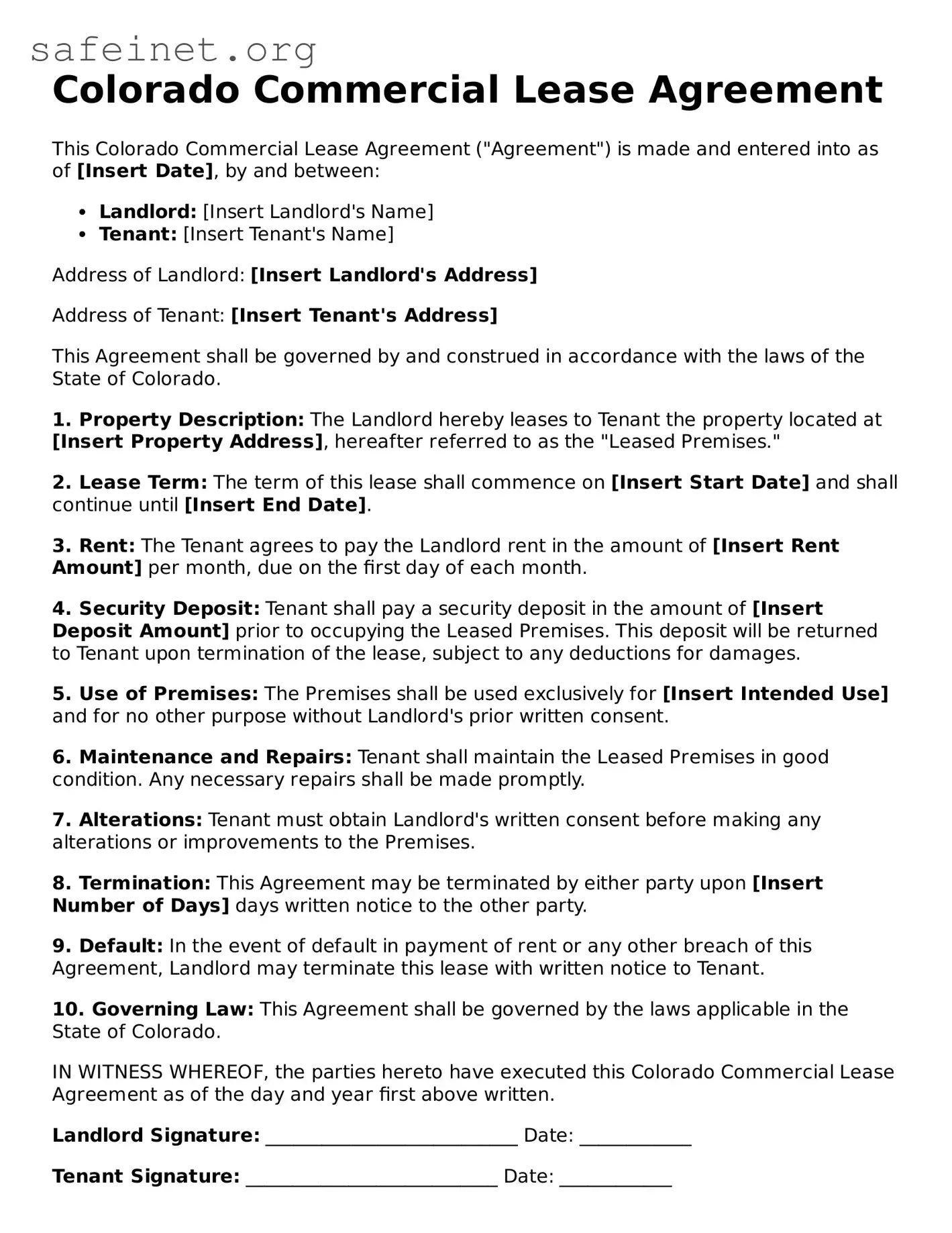Colorado Commercial Lease Agreement
This Colorado Commercial Lease Agreement ("Agreement") is made and entered into as of [Insert Date], by and between:
- Landlord: [Insert Landlord's Name]
- Tenant: [Insert Tenant's Name]
Address of Landlord: [Insert Landlord's Address]
Address of Tenant: [Insert Tenant's Address]
This Agreement shall be governed by and construed in accordance with the laws of the State of Colorado.
1. Property Description: The Landlord hereby leases to Tenant the property located at [Insert Property Address], hereafter referred to as the "Leased Premises."
2. Lease Term: The term of this lease shall commence on [Insert Start Date] and shall continue until [Insert End Date].
3. Rent: The Tenant agrees to pay the Landlord rent in the amount of [Insert Rent Amount] per month, due on the first day of each month.
4. Security Deposit: Tenant shall pay a security deposit in the amount of [Insert Deposit Amount] prior to occupying the Leased Premises. This deposit will be returned to Tenant upon termination of the lease, subject to any deductions for damages.
5. Use of Premises: The Premises shall be used exclusively for [Insert Intended Use] and for no other purpose without Landlord's prior written consent.
6. Maintenance and Repairs: Tenant shall maintain the Leased Premises in good condition. Any necessary repairs shall be made promptly.
7. Alterations: Tenant must obtain Landlord's written consent before making any alterations or improvements to the Premises.
8. Termination: This Agreement may be terminated by either party upon [Insert Number of Days] days written notice to the other party.
9. Default: In the event of default in payment of rent or any other breach of this Agreement, Landlord may terminate this lease with written notice to Tenant.
10. Governing Law: This Agreement shall be governed by the laws applicable in the State of Colorado.
IN WITNESS WHEREOF, the parties hereto have executed this Colorado Commercial Lease Agreement as of the day and year first above written.
Landlord Signature: ___________________________ Date: ____________
Tenant Signature: ___________________________ Date: ____________
